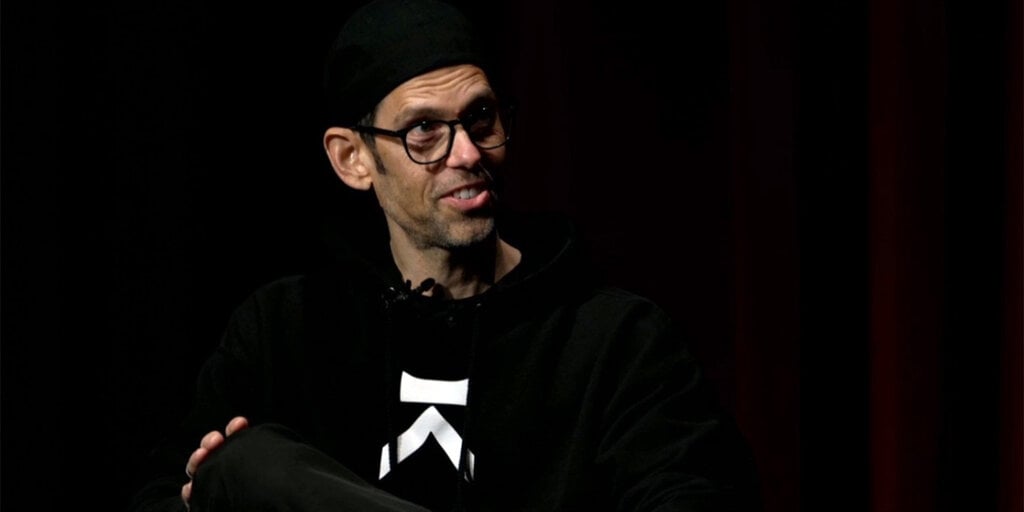Artificial intelligence and its convergence with blockchain technology were hot topics at the annual VanEck Blockchain Conference in Los Angeles. For Tom Bilyeu—creator of the Project Kyzen 3D avatar and game platform—proof of authenticity is the perfect first use case, particularly in the face of AI-generated deepfakes.
“I think [AI deepfakes] are going to escalate so dramatically in 2024 as we march towards the election—I don’t think people understand how serious it’s going to get,” Bilyeu told Decrypt, pointing to a recent AI-generated deepfake scam that impersonated MicroStrategy’s Michael Saylor. “Getting some sort of AI-based watermarking or putting these things on the blockchain so you can have proof of authenticity is going to be absolutely critical.”
The threat of AI-generated deepfakes has grown to the point that the Biden Administration said in February that it plans to tag authentic content with digital watermarks and cryptography to fight disinformation.
A web3 game developer and wellness entrepreneur, Bilyeu also co-founded Impact Theory with his wife Lisa in 2016 after selling Quest Nutrition for a reported $1 billion. The Impact Theory YouTube channel boasts over 4 million subscribers.
Impact Theory sold “Founders Keys” NFT in December 2021 as a way to raise funds in exchange for a stake in the company. The firm was sued by the Securities and Exchange Commission (SEC) last August, settling with the regulatory agency by paying a $6 million fine and burn the keys.
In the mean time, Bileu introduced Project Kyzen, a digital platform with evolving game features and digital avatars in a 3D world. The project team includes ex-executives from Riot Games, Disney, and Bank of America.
Since the launch of OpenAI’s GPT-4 last year, generative AI model developers have been dogged by plagiarism and copyright infringement accusations.
The New York Times sued OpenAI in December over copyright infringement, claiming that millions of the outlet’s articles were used to train AI models without permission. In January, OpenAI pushed back on the Times’ claims saying that the news outlet crafted its AI prompts to generate the most damning evidence possible.
Proving who created a piece of information and tracking where it’s been would be helpful in such a dispute, Bilyeu said.
“I thought there would be a more rapid adoption of the blockchain for that purpose,” he said. “But I think people are getting caught off guard by just how fast AI is moving.”
He said proving ownership is where enlisting blockchain technology as a digital ledger can be of great use.
“It will certainly help in the virtual world in that you can take an item—in the same way that you could take something as proof of humanity—you could do proof of copyright ownership if you have a rights management system that plugs into the blockchain,” he said. “On a longer timeline, I think that will be incredibly useful.”
Bilyeu also proposed using blockchain to create scarecity, to ensure digital assets retain value and bridge the gap between physical and virtual realms.
“You actually know how many of something there are, you know where they are, and who owns them,” he said.

